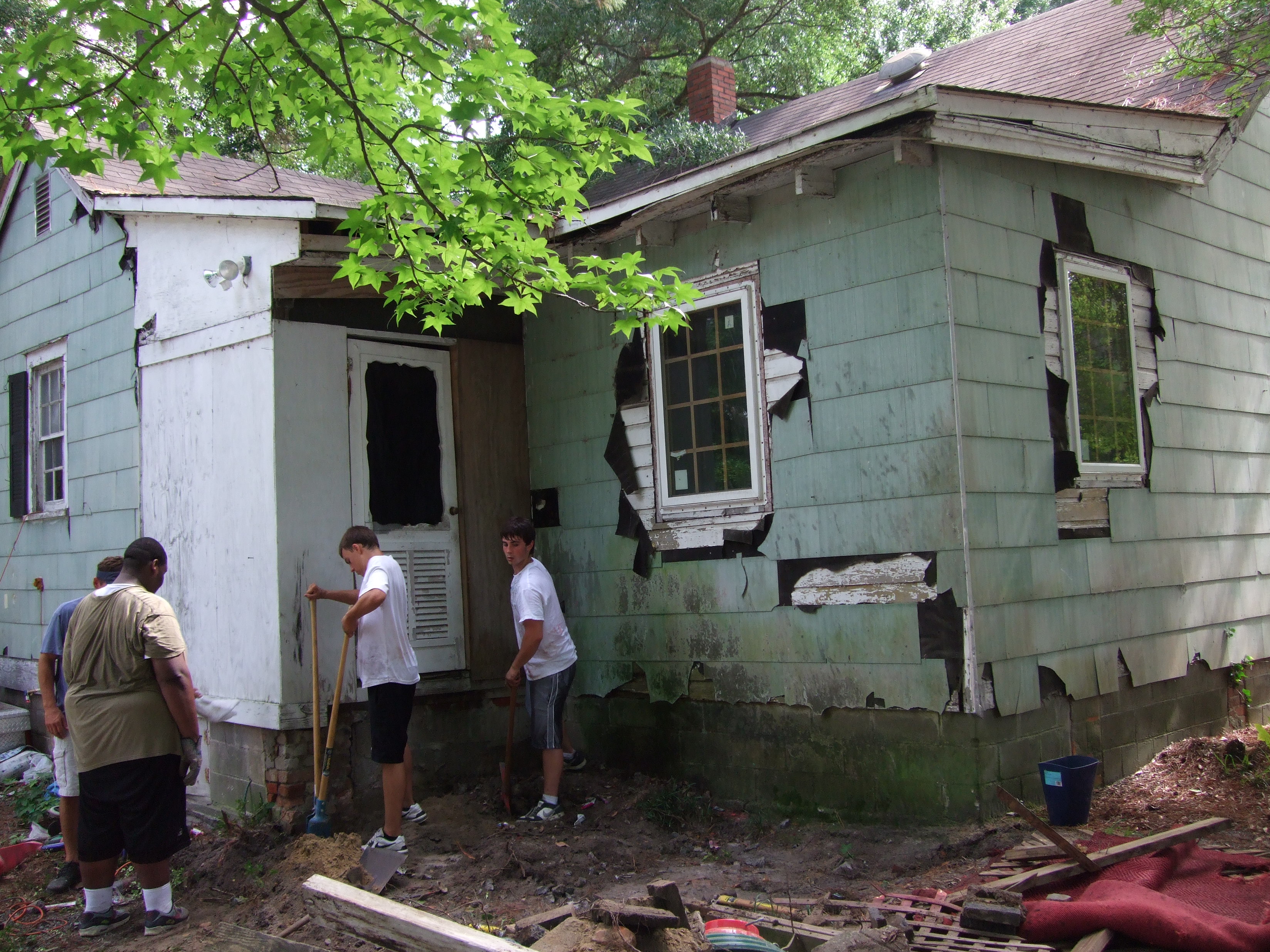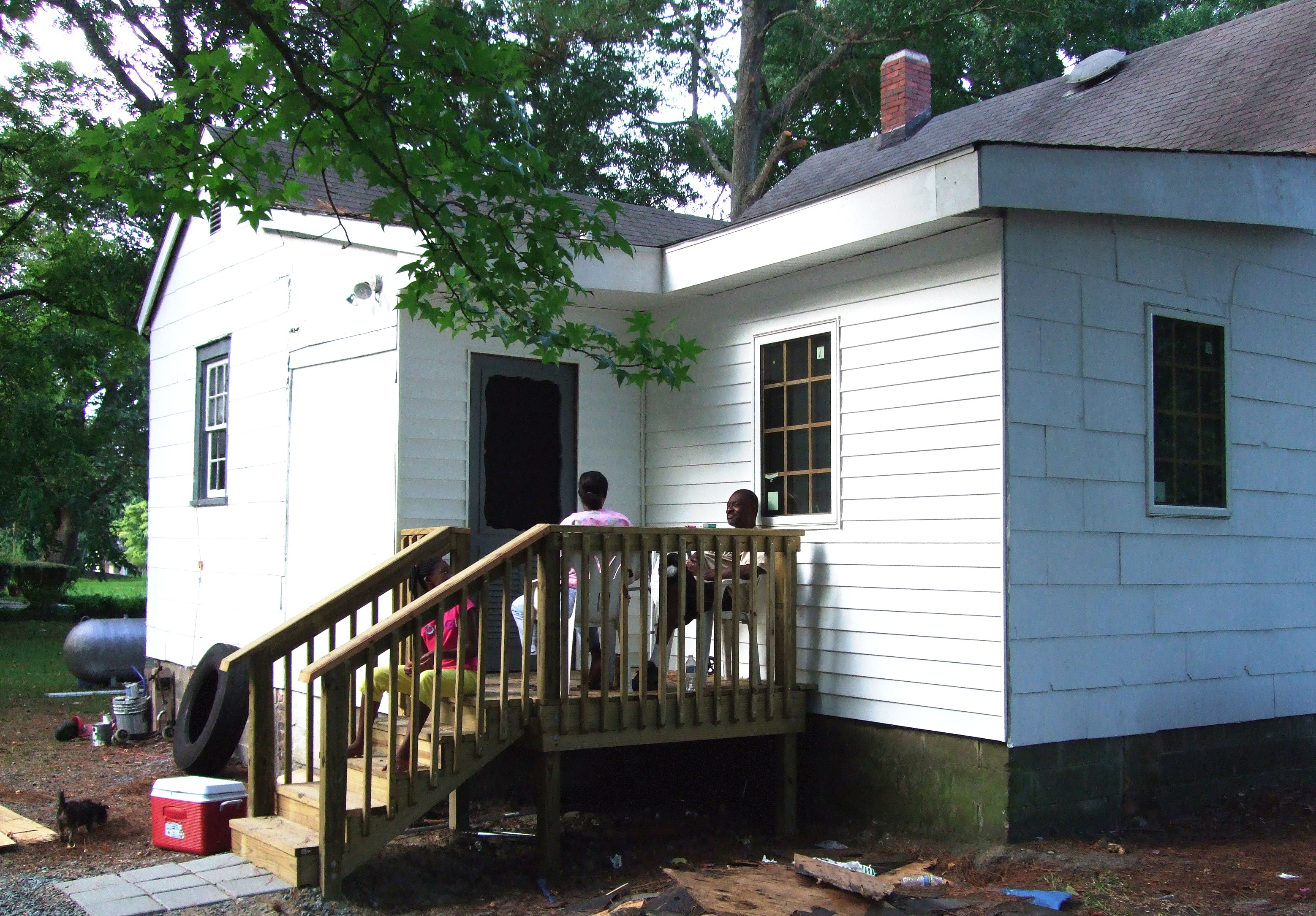Before Hurricane Florence in 2018, it was rare to hear anyone outside of the human services or government sectors mention affordable housing. The term was misunderstood, and most people imagined dilapidated apartment buildings and crime.
 Not anymore. Affordable housing is increasingly included in conversations about disaster recovery, economic development, land development regulations, health, transportation, workforce development, and many other issues. A few examples include:
Not anymore. Affordable housing is increasingly included in conversations about disaster recovery, economic development, land development regulations, health, transportation, workforce development, and many other issues. A few examples include:
- In July 2019, during the “The H Word” Power Breakfast panel with Mike Sprayberry, Director of NC Emergency Management, said, “our number one priority in emergency management is affordable housing.” Housing impacts disaster response in two big ways: homes in disrepair are most likely to be damaged or destroyed by storms and, due to the loss of affordable options, displaced people have nowhere to go.
- Two years later, the June 2021 Power Breakfast topic was the recent real estate boom. All four panelists mentioned affordable housing as an issue that impacts everyone: local government needs a strong tax base; businesses need employees who live where they work; and workers need a home that leaves enough income to pay for other living expenses. Architect Chris Boney, said “the issues of economic disparity that we have in the community affect every aspect of the economy, all the way upstream.”
- The Healthy North Carolina 2030 plan identifies ‘severe housing problems’ as the 9th indicator, of 21, linked to negative health outcomes citing lack of functional plumbing systems, inadequate kitchen facilities, and environmental contaminants. In addition, “severe cost burden forces families to choose between disproportionately allocating income for housing at the expense of other necessities, or alternatively, choosing poor quality housing options that are more affordable.”
The math makes it meaningful
Affordable housing is a blanket term that simply means your total housing costs (including utilities) does not exceed 30% of your gross income. For example, if you earn $5,000 per month and your housing costs do not exceed $1,500, it’s affordable to you. The market provides housing in this range.

Generally, when policymakers and social service workers use the term “affordable housing,” they are referring to housing that is not available on the open market. People earning near the minimum wage need housing that costs less than $400 per month. Those living on fixed incomes may be priced out of their home as the costs continue to rise.
The 2021 area median income (AMI) for a family of four in New Hanover County is $76,200. Government programs typically design their programs around a percentage of AMI. For example, WARM administers a state-funded program to make urgent repairs for homeowners earning 50% AMI ($38,300) per year or less. The average income of a WARM homeowner is around $17,000 per year.
Sadly, we have no trouble finding qualified applicants.
The most efficient strategy
Traditionally, conversations around affordable housing focus on increasing the supply. This is absolutely necessary as about one-third of households in our region spend more than 30% of their income on housing.
However, the most efficient strategy is
to preserve the affordable housing that already exists, often in tight-knit communities. A new 1,000 square foot
home costs over $180,000 to build. Thanks to the dedication of hundreds of volunteers, WARM can preserve a home for an average of less than $20,000. In our 25 years of service, WARM has helped to preserve over 1600 homes in the Cape Fear Region.
WARM families purchased their homes on their own; 45-60% in any given year have paid off their mortgage! Helping them keep their homes builds on the community’s strengths, takes advantage of existing infrastructure, preserves existing affordable housing, and builds wealth for the next generation.
As our leaders continue the important work of building more affordable homes in our region, remember the families with little to no wealth who have quietly achieved this on their own. At a fraction of the price of building new, we can help save affordable housing that positively impacts disaster response, health, economic development, and countless other aspects of life.
JC Lyle has served as WARM’s Executive Director since January 2009. Under her leadership, WARM's annual revenue and productivity have more than quadrupled. Prior to working in the nonprofit sector, Lyle worked at McKim & Creed on subdivision design, rezoning and permitting throughout coastal North Carolina. Lyle earned her Master of Business Administration from UNCW's Cameron School of Business and has presented workshops on affordable housing issues and nonprofit management at state-level conferences. Lyle serves on the Planning Commission for the City of Wilmington and the North Carolina Housing Partnership, the board that oversees the state's housing trust fund. In 2012, Lyle was named Wilma Magazine's first Woman to Watch in the Nonprofit Category. In 2014, she accepted WARM's Coastal Entrepreneur Award in the Nonprofit Category, given by the Greater Wilmington Business Journal and UNCW’s Center for Innovation and Entrepreneurship. In 2018, the Association of Fundraising Professionals, Cape Fear Chapter named her Outstanding Fundraiser of the Year.
 Not anymore. Affordable housing is increasingly included in conversations about disaster recovery, economic development, land development regulations, health, transportation, workforce development, and many other issues. A few examples include:
Not anymore. Affordable housing is increasingly included in conversations about disaster recovery, economic development, land development regulations, health, transportation, workforce development, and many other issues. A few examples include:
 Generally, when policymakers and social service workers use the term “affordable housing,” they are referring to housing that is not available on the open market. People earning near the minimum wage need housing that costs less than $400 per month. Those living on fixed incomes may be priced out of their home as the costs continue to rise.
Generally, when policymakers and social service workers use the term “affordable housing,” they are referring to housing that is not available on the open market. People earning near the minimum wage need housing that costs less than $400 per month. Those living on fixed incomes may be priced out of their home as the costs continue to rise.


